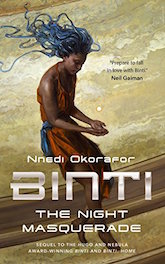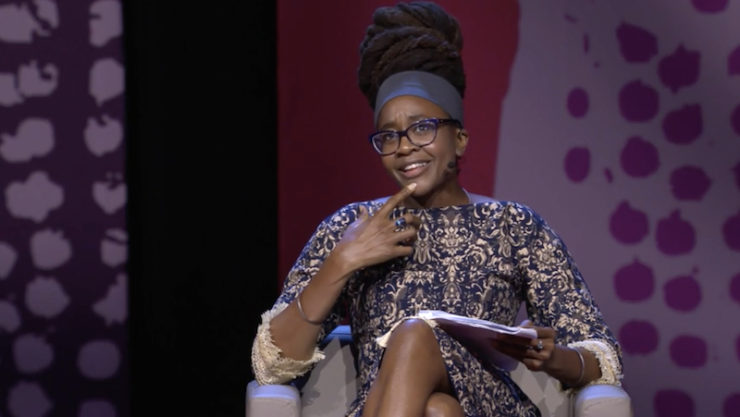“What if an African girl from a traditional family in a part of future Africa is accepted into the finest university in the galaxy, planets away?” Binti author Nnedi Okorafor began her talk at the TEDGlobal 2017 conference in Arusha, Tanzania this past August. “What if she decides to go?” Those two words—what if—are immensely powerful, opening up a universe of possibilities. During her nine-minute talk, Okorafor carries that thought experiment further: “What if aliens came to Lagos, Nigeria?” And, the biggest one of all: “What if a Nigerian-American wrote science fiction?”
Okorafor has summed up her Binti trilogy as “African girl leaves home. African girl comes home. African girl becomes home.” In her talk, she explains how Himba mathematician Binti’s journey and transformation encapsulates one of the central tenets of Afrofuturism—which, in turn, led to a fascinating way to look at the genre of science fiction and its diverging bloodlines:
This idea of leaving but bringing and then becoming more is at one of the hearts of Afrofuturism, or you can simply call it a different type of science fiction. I can best explain the difference between classic science fiction and Afrofuturism if I used the octopus analogy. Like humans, octopuses are some of the most intelligent creatures on earth. However, octopus intelligence evolved from a different evolutionary line, separate from that of human beings, so the foundation is different. The same can be said about the foundations of various forms of science fiction.
Buy the Book


Binti: The Night Masquerade
Not all science fiction adopts the Western perspective, Okorafor says, describing her own way into the genre—through a preoccupation not with xenophobia, but with the role that technology played in Nigeria in the 1990s, and “how my Americanness othered me enough to be intrigued by these things that most Nigerians saw as normal.” The complete TED Talk, which includes excerpts from Binti and her novel Lagoon, is well worth your time.
Binti: The Night Masquerade, the final installment in the trilogy in which you’ll find out exactly what Okorafor means by “African girl becomes home,” is available January 16 from Tor.com Publishing.










